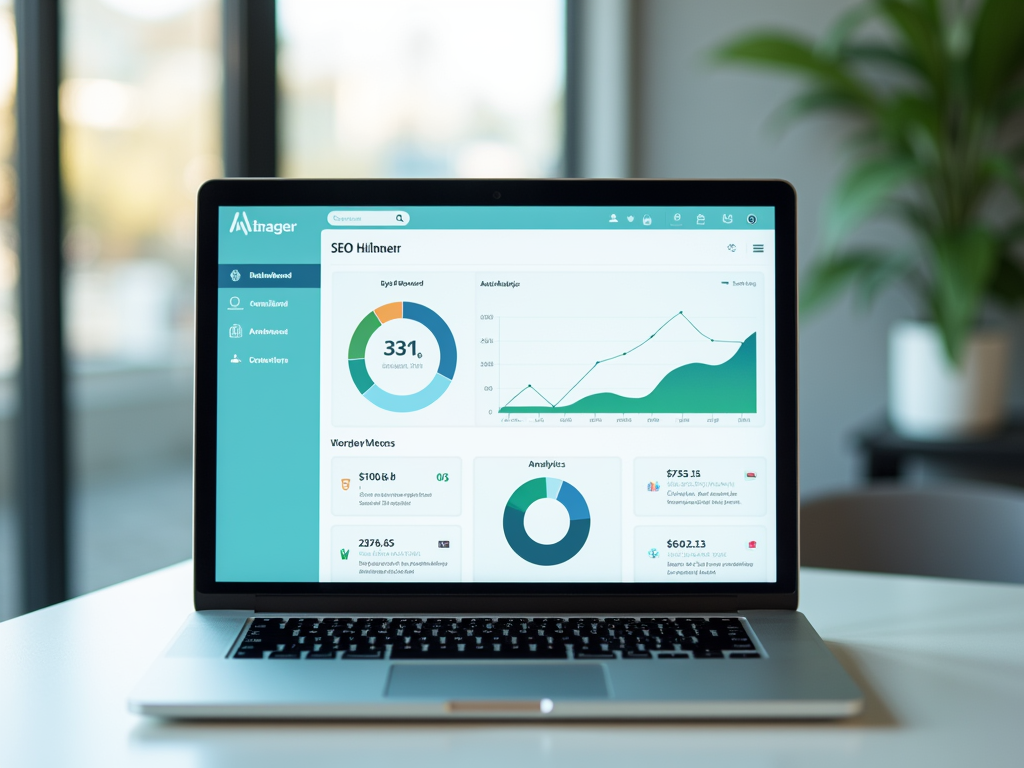If you’re venturing into the digital realm, you’re likely aware that visibility is key. Imagine having the most beautifully designed website, only for it to remain a secret in the vast expanse of the internet. This is where SEO, or Search Engine Optimization, plays a crucial role. Mastering SEO is not a daunting task reserved for tech wizards; rather, it’s a skill that you can teach yourself within just 30 days, provided you have the right mindset and structured approach. This guide will be your roadmap, leading you through essential concepts, practical strategies, and valuable tools to arm yourself for SEO success.
SEO is about understanding how search engines operate and learning to optimize your online presence to align with their algorithms. When done correctly, this not only drives organic traffic but also enhances user experience and engagement. Over the course of 30 days, you will explore everything from keyword research to analytics, empowering you to make informed decisions that benefit your website. Excited? Let’s embark on this journey together as we break down key knowledge into bite-sized chunks.
Setting Your SEO Goals

Before diving into the technicalities of SEO, it’s essential to outline your objectives. Like any skill, having clear goals can provide the motivation you need to sustain your learning journey. Begin by identifying what you hope to accomplish during this 30-day period. Whether it’s increasing website traffic, improving search rankings, or enhancing content quality, clarity is key.
- Identify Personal or Business Goals: Understand why you want to learn SEO and how it will benefit you.
- Understand Key Performance Indicators (KPIs): Metrics such as organic traffic, bounce rate, and conversion rates will help you measure your success.
- Set Realistic Timelines: Establish time frames for short-term and long-term goals to keep you motivated and on track.
Week 1: The Fundamentals of SEO

The first week should focus on establishing a solid foundation. Understanding how search engines operate is paramount to effective SEO. Search engines like Google have specific algorithms designed to provide users with the best possible results for their queries. Essentially, these algorithms evaluate a plethora of factors to determine which web pages will rank higher. Moreover, learning about the difference between crawlers and indexing can significantly impact how your content is presented in search results.
Understanding Search Engines
Search engines are not just powerful tools for finding information; they are complex systems that entail a series of automated processes. First, crawlers, also known as spiders, scavenge the web to discover new content. Once they find it, the content is categorized and stored in a massive database. This process is called indexing and it determines how quickly and accurately your content can be found in response to search queries. A deeper understanding of this process can significantly enhance how you optimize your website.
Key Components of SEO
- Keywords: These are the phrases that users type into search engines, making them a vital part of your content.
- On-Page SEO: This involves optimizing the elements of your website, such as titles, URLs, and content.
- Off-Page SEO: This includes tactics performed outside your website, like building backlinks and engaging in social media.
Week 2: Keyword Research
Keyword research is an art and science unto itself and is central to an effective SEO strategy. The goal is to identify what your target audience is searching for and tailor your content accordingly. Various tools are available to assist with this task, making it easier to discover popular and relevant keywords. For instance, Google Keyword Planner is a great starting point to gather data on search volumes and competition.
| Keyword Tool | Features | Best For |
|---|---|---|
| Google Keyword Planner | Search volume, competition | Beginners |
| SEMrush | Keyword rankings, ad research | Advanced users |
| Ahrefs | Backlink analysis, keyword research | All levels |
Once you’ve gathered your keywords, the next step is to develop a strategy. Consider the difference between long-tail and short-tail keywords—while short-tail are highly competitive, long-tail keywords often yield higher conversion rates due to their specificity. Creating keyword clusters, where you group similar keywords, can help in structuring your content and improving relevance. Engaging in careful keyword planning allows not just for higher visibility but for meaningful connections with your target audience.
Week 3: On-Page SEO Techniques
Now that you’ve laid the groundwork with keywords, it’s time to enhance your content through On-Page SEO techniques. This involves various tactics designed to make every page on your site not just user-friendly but also optimized for search engines. Remember that optimal on-page SEO can drastically improve your visibility in search results. Key aspects encompassing title tags, meta descriptions, and header tags deserve focused attention in this regard.
- Title Tags: These should incorporate your primary keywords and entice users to click.
- Meta Descriptions: Though they don’t directly affect rankings, crafting compelling meta descriptions can boost click-through rates.
- URL Structure: Keep URLs concise and descriptive for both users and search engines.
Week 4: Off-Page SEO and Analytics
In the final week, it’s vital to round out your learning with off-page SEO techniques, including building backlinks and diving into analytics. Backlinks are crucial as they signal to search engines that your content is reliable and valuable. However, focus on quality over quantity; a few strong backlinks can deliver more value than a plethora of weak ones. Additionally, analytics tools will help you measure the effectiveness of your SEO strategies so you can make data-driven decisions moving forward.
Introduction to tools like Google Analytics and Search Console can be invaluable for tracking your progress. These platforms not only help you monitor website performance but also offer insights into user behavior. Understanding these metrics will inform your SEO practices and help you adapt to changing algorithms. The world of SEO does not remain static, and by committing to analyzing your data, you can stay ahead of the curve and continue improving your online strategy.
Conclusion
In conclusion, teaching yourself SEO in 30 days is not only achievable but immensely rewarding. Armed with the right knowledge and tools, you can significantly enhance your digital presence and performance. The key lies in continuous learning, adaptation, and the willingness to experiment with various strategies. As you progress, remember that SEO is a dynamic field; staying updated and flexible in your strategies will yield the best results over time. So, roll up your sleeves, start applying what you’ve learned, and watch your efforts bear fruit.
Frequently Asked Questions
- What is SEO? SEO stands for Search Engine Optimization, a practice to enhance the visibility of a website in search engine results.
- How long does it take to learn SEO? While the basics can be learned in 30 days, mastering SEO is an ongoing process that requires continuous education and practice.
- Can I teach myself SEO? Absolutely! Many resources are available online for self-learning, including blogs, courses, and forums.
- What is the best way to stay updated on SEO trends? Follow SEO blogs, newsletters, and engage with communities on platforms like Twitter and LinkedIn to stay informed about the latest trends and updates.
